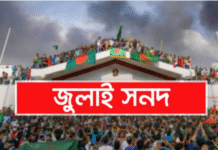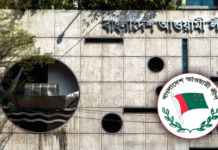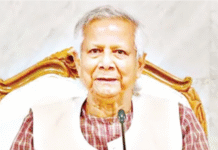
UN offices, alongside Member States and non-governmental organizations, hold events to honour fallen peacekeepers. Since the first UN peacekeeping mission in 1948 until April 2015, 3,358 military, police and civilian personnel have lost their lives in the service of peace as a result of acts of violence, accidents and disease.
Background
The UN Truce Supervision Organization (UNTSO) was founded on May 29, 1948. UNTSO`s task was to assist peacekeepers to observe and maintain a cease-fire. This cease-fire marked the end of the hostilities between Israel and the Arab League forces.
The hostilities started after the end of the British Mandate of Palestine on May 14, 1948. On December 11, 2002, the UN General assembly designated May 29 as the International Day of United Nations Peacekeepers. The day was first observed on May 29, 2003.
The International Day of United Nations Peacekeepers is a tribute to people who serve or have served in UN peacekeeping operations. The peacekeepers are honored for their high level of professionalism, dedication and courage. People who died for peace are also remembered.
`Together for Peace`
As this year`s International Day of UN Peacekeepers falls during the 70th anniversary of the United Nations, we are reflecting on the past, present and future of UN Peacekeeping and reaffirm our commitment to working `Together for Peace`.
Since its inception in 1948, the UN has established 71 peacekeeping operations – in Africa, the Americas, Asia, Europe and the Middle East. The number of people who have been UN peacekeepers — more than 1 million — far surpasses the total number of staff who had worked for the UN in all other capacities worldwide.
Today, some 125,000 women and men serve in 16 peacekeeping missions across the globe. Our peacekeepers are deployed in some of the world`s most challenging and austere environments and mandated with increasingly complex and difficult tasks.
Over the decades, UN Peacekeeping has implemented a series of reforms to be both `fit for purpose` and innovative in the management of field operations. They continue to strive towards greater performance, efficiency and cost-effectiveness, introducing new technologies and strengthening our partnerships worldwide.
Events around the world
At the UN Headquarters in New York, the Deputy Secretary-General on 29 May presides over a wreath-laying ceremony in honour of all peacekeepers who lost their lives while serving under the UN flag.
In addition, the Dag Hammarskjöld Medal is awarded posthumously to the peacekeepers who have fallen while serving in the cause of peace, during the preceding year.
UN peacekeeping operations mark the Day by strengthening bonds with the local populations that they have been deployed to serve. For example, by holding sporting events, school and orphanage visits, art and essay competitions, photo exhibits, neighbourhood clean ups, tree plantings, concerts, and conferences and workshops on peace issues. Events around the world will be shared through the tag #Together4Peace.
Previous Peacekeepers Days
The UN General Assembly designated Peacekeepers Day in 2002. In recent years, they have encouraged the celebration of the Day under a common theme:
• 2014: A force for the future – focusing on how UN Peacekeeping is evolving to meet new challenges
• 2013: Adapting to new challenges – exploring the changing needs of international peace and security
• 2012: Peacekeeping is a Global Partnership – highlighting the variety of partnerships we have at every stage of our work.
• 2011: Law. Order. Peace – focusing on our efforts to strengthen rule of law.
• 2010: Ayiti Kanpe (Haiti Standing) – remembering the earthquake in Haiti that resulted in the death of 102 UN personnel, including 97 peacekeepers;
• 2009: Women in peacekeeping – the important role of women peacekeepers;
• 2008: 60th anniversary of UN Peacekeeping.
Bangladesh in peacekeeping
The Bangladesh Armed Forces and the Bangladesh Police have been actively involved in a number of United Nations Peace Support Operations (UNPSO) since its formation in the 1970s.
Its first deployments came in 1988, when it participated in two operations – UNIIMOG in Iraq and UNTAG in Namibia. Then President Lieutenant General Hussain Muhammad Ershad initiated these deployments in 1988 for the first time with UNIIMOG.
Later, as part of the UNIKOM force deployed to Kuwait and Saudi Arabia following the Gulf War the Bangladesh Army sent a mechanized infantry brigade (approx. 2,193 personnel). Since then, the Bangladesh Army has been involved in up to thirty different UNPKO`s covering as many as twenty five countries.
This has included activities in Namibia, Cambodia, Somalia, Uganda, Rwanda, Mozambique, former Yugoslavia, Liberia, Haiti, Tajikistan, Western Sahara, Sierra Leone, Kosovo, Georgia, East Timor, Congo, Côte d`Ivoire and Ethiopia.
As of October 2014, Bangladesh contributed the highest number of total personnel to United Nations Peacekeeping Operations; with 8,758 personnel attached to various UN peacekeeping forces worldwide.
As a result of its contributions to various UN peacekeeping operations, eighty eight Bangladesh peacekeepers have lost their lives, out of which eighty four belong to Bangladesh Army, one to Bangladesh Navy and three to Bangladesh Air Force.
The leader of Bangladesh contingent to Namibia UNTAG Lieutenant Colonel Md. Faizul Karim died in Windhoek, Namibia in 1989. He was the first Bangladeshi officer who died on a peace-keeping mission abroad.
The performance of Bangladesh`s contingents has been described as being of the highest order and the appointment of several senior Bangladesh military officers as the Commander of UN peacekeeping missions.
Senior Military Liaison Officers, may be seen as further recognition of the Bangladesh Army`s growing esteem in the peacekeeping community. In 2008, the BBC in described the Bangladeshi UN Force as The Cream of UN Peacekeepers.
Source: Bd Today









